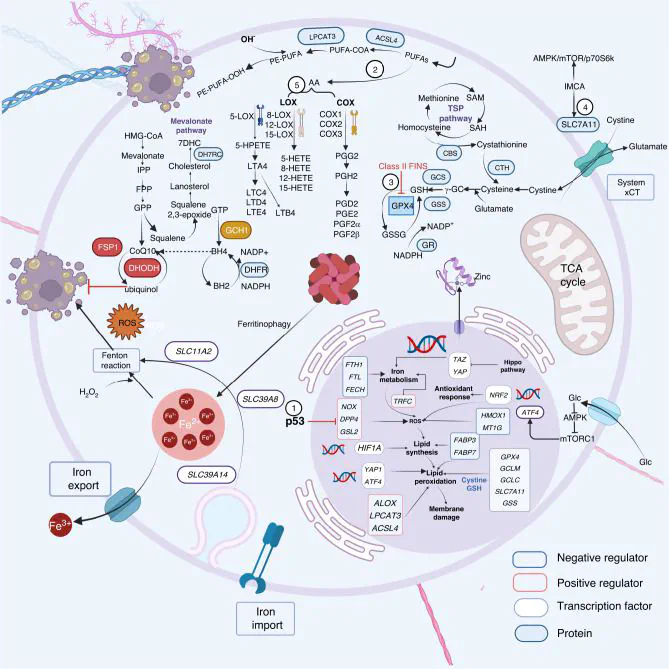Ferroptosis in colorectal cancer: a future target?

Abstract
Colorectal cancer (CRC) is the third leading cause of cancer deaths worldwide and is characterised by frequently mutated genes, such as APC, TP53, KRAS and BRAF. The current treatment options of chemotherapy, radiation therapy and surgery are met with challenges such as cancer recurrence, drug resistance, and overt toxicity. CRC therapies exert their efficacy against cancer cells by activating biological pathways that contribute to various forms of regulated cell death (RCD). In 2012, ferroptosis was discovered as an iron-dependent and lipid peroxide-driven form of RCD. Recent studies suggest that therapies which target ferroptosis are promising treatment strategies for CRC. However, a greater understanding of the mechanisms of ferroptosis initiation, propagation, and resistance in CRC is needed. This review provides an overview of recent research in ferroptosis and its potential role as a therapeutic target in CRC. We also propose future research directions that could help to enhance our understanding of ferroptosis in CRC.
Publication
British Journal of Cancer
Type
Journal Articles